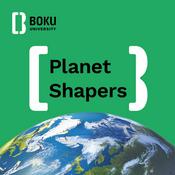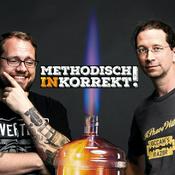Verfügbare Folgen
5 von 1144
- Sylvia D. Hoffert, "Wagging Tongues and Tittle Tattle: Gossip, Rumor, and Reputation in a Small Southern Town" (U Georgia Press, 2025)In Wagging Tongues and Tittle Tattle: Gossip, Rumor, and Reputation in a Small Southern Town (University of Georgia Press, 2025), Dr. Sylvia Hoffert calls on a particularly rich collection of primary sources, including diaries, letters, oral histories, census data, court documents, church records, and psychiatric hospital logs, all relating to Hillsborough, North Carolina, to argue that gossip and rumor were central to the formation of interpersonal relationships and an integral part of small-town life in the antebellum South. They exposed the insecurities and anxieties of the town’s inhabitants. Indeed, they served as important weapons in the power struggle between the white slaveholding elite—who tried to exert, maintain, and consolidate their control over community life—and the Black, white, and mixed-race men and women, free and enslaved, who did their best to challenge the socioeconomic status quo. And they exposed fissures in the social fabric that discretion, good manners, and historical amnesia could not obscure. The result was that, on a day-to-day basis, the shady streets of Hillsborough may have seemed peaceful to the casual observer. But underneath all that tranquility, the town was ripe with competition and conflict as the inhabitants used gossip to negotiate relationships with their neighbors and make places for themselves in the social, economic, and political hierarchy of the community. This interview was conducted by Dr. Miranda Melcher whose book focuses on post-conflict military integration, understanding treaty negotiation and implementation in civil war contexts, with qualitative analysis of the Angolan and Mozambican civil wars. You can find Miranda’s interviews on New Books with Miranda Melcher, wherever you get your podcasts. Learn more about your ad choices. Visit megaphone.fm/adchoices Support our show by becoming a premium member! https://newbooksnetwork.supportingcast.fm/sociology--------46:21
- Andrea Flores, "The Succeeders: How Immigrant Youth Are Transforming What It Means to Belong in America" (UC Press, 2021)Dr. Andrea Flores’ most recent book, The Succeeders: How Immigrant Youth Are Transforming What It Means to Belong in America (University of California Press, 2021), is a detailed account of how immigrant youth in Nashville, Tennessee negotiated the stakes of academic achievement by reproducing terms of belonging while at the same time recasting what it means to belong in the United States. By focusing on a nonprofit college access program for Latino youth from which the title of the book is derived, Flores argues that Succeeders’ educational achievements were viewed “as positive moral proof against deficit constructions of Latinos while also maintaining a link to educación’s [emphasis in original] personal, cultural, and familial value” (16). The hybridity of assigning moral value to book learning while also hinging their striving to familial networks is what Flores believes to be critical to the Succeeders’ perception of self. By offering a radically different route to belonging through the vehicle of family and care, the Succeeders hoped to earn not just their own national membership, but also the membership of those near and dear. Flores conducted ethnographic research for twelve months while also serving as a volunteer for the Succeeders program of southern Nashville across four campuses for the academic year 2012 - 2013. She observed effective communication skits, field trips, organizational meetings, community service activities, musical performances, athletic games, scholarship selection committees, and graduation ceremonies to best understand the lived experiences of Succeeders within and outside of their educational institutions. Flores also conducted thirty-one semistructured interviews with Succeeders whose families were primarily from Mexican and Central America. Further, half of the interviews included undocumented youth, and students from all levels of academic achievement were selected. Strategic selecting of Succeeders allowed Flores to examine how students across a variety of academic preparations and immigrant backgrounds perceived themselves within larger conceptions of Latindidad and educational achievement. Interviews with the program’s leaders, teachers, and admissions officers revealed the internal dialogues of those most tasked with the Succeeders’ success. A robust textual archive in the form of college admissions handouts, college entrance essays, and Succeeders curricular materials were collected by the author. These mixed methods allowed Flores to provide detailed and rich accounts of how Latino youth navigated the college application process, the end of high school, and their personal lives. Jonathan Cortez is currently the 2021-2023 César Chávez Postdoctoral Fellow in the Department of Latin American, Latino, and Caribbean Studies at Dartmouth College. You can follow Jonathan on Twitter @joncortz Learn more about your ad choices. Visit megaphone.fm/adchoices Support our show by becoming a premium member! https://newbooksnetwork.supportingcast.fm/sociology--------1:07:49
- “Rurality 2.0”: How City Migrants are Reshaping Norway’s Rural Regions with Tom BratrudIn today’s episode, we talk to Tom Bratrud about his ongoing, long-term work with city-dwellers who migrate to rural parts of Norway. This research forms the basis of Tom’s forthcoming book project, which has the working title Rurality 2.0: Redefining Urban-Rural Divides in the Mountains of Norway. Tom Bratrud is Associate Professor in Social Anthropology at the University of Bergen. His research investigates social life, political dynamics, value(es), religion/worldviews, emerging technologies, environmental issues and rural-urban relations. Prior to his work in his home valley of Valdres in southern Norway, he conducted extensive ethnographic fieldwork in Vanuatu in the South-Pacific—resulting in his first monograph Fire on the Island: Fear, Hope and a Christian Revival in Vanuatu (Berghahn 2022). Tom is the co-convenor of European Association of Social Anthropology (EASA)’s Future Anthropologies Network. Just after we spoke, Tom was also awarded the inaugural Thomas Hylland Eriksen Memorial Prize, presented during the Norwegian Anthropological Association’s Conference in Oslo at the end of October 2025. In explaining their decision, the jury commented that Bratrud “unites global and local perspectives and shows how social anthropological approach and methodology become a key to understanding ongoing change.” Tom Bratrud is Associate Professor of Social Anthropology at the University of Bergen. Tom Bratrud receives the Thomas Hylland Eriksen Memorial Prize. Learn more about your ad choices. Visit megaphone.fm/adchoices Support our show by becoming a premium member! https://newbooksnetwork.supportingcast.fm/sociology--------1:11:07
- Shilla Lee , "Crafting Rural Japan: Traditional Potters and Rural Creativity in Regional Revitalization" (Routledge, 2024)Centering collaborations and frictions around a Japanese town’s pottery industry, Crafting Rural Japan: Traditional Potters and Rural Creativity in Regional Revitalization (Routledge, 2024)n discusses the place of creative village policy in the revitalization of rural Japan, highlighting how rural Japan is moving from a state of regional extinction to regional rejuvenation. Using the case study of Tamba Sasayama in Hyogo Prefecture, where collective initiatives by local government and the role of the local traditional potters are invested in fostering an aura of creativity in the region, the book examines the complex social relations and the intertwining values of different actors to illustrate how a growing outlook on creativity, rurality, and rural creativity requires a renewed perspective on and of rural Japan. Based on extensive field research, Crafting Rural Japan will be a valuable resource for students and scholars of Japanese studies, rural studies, and anthropology. Shilla Lee is a postdoctoral researcher at the Institut für Modernes Japan, Heinrich-Heine-Universität Düsseldorf. Her work explores contemporary craft and its entanglements with social change and post-growth perspectives emerging from rural Japan. Yadong Li is a socio-cultural anthropologist-in-training. He is registered as a PhD student at Tulane University. His research interests lie at the intersection of political ecology, critical development studies, and the anthropology of time. More details about his scholarship and research interests can be found here. Learn more about your ad choices. Visit megaphone.fm/adchoices Support our show by becoming a premium member! https://newbooksnetwork.supportingcast.fm/sociology--------1:04:36
- Maja Davidović, "Governing the Past: 'Never Again' and the Transitional Justice Project" (Cambridge UP, 2025)The way we govern the past to ensure peaceful futures keeps conflict anxieties alive. In pursuit of its own survival, permanence and legitimacy, the project of transitional justice, designed to put the 'Never Again' promise into practice, makes communities that ought to benefit from it anxious about potential repetition of conflict. Governing the Past: 'Never Again' and the Transitional Justice Project (Cambridge UP, 2025)challenges the benevolence of this human rights-led global project. It invites readers to reflect on the incompatibility between transitional justice and the grand goal of ensuring peace, and to imagine alternative and ungovernable futures. Rich in stories from the field, the author draws on personal experiences of conflict and transition in the former Yugoslavia to explore how different elements of transitional justice have changed the structure of this Bosnia and Herzegovina and neighbouring societies over the years. This powerful study is essential reading for students, scholars and practitioners interested in human rights and durable international peace. Learn more about your ad choices. Visit megaphone.fm/adchoices Support our show by becoming a premium member! https://newbooksnetwork.supportingcast.fm/sociology--------54:44
Weitere Wissenschaft Podcasts
Trending Wissenschaft Podcasts
Über New Books in Sociology
This podcast is a channel on the New Books Network. The New Books Network is an academic audio library dedicated to public education. In each episode you will hear scholars discuss their recently published research with another expert in their field.
Discover our 150+ channels and browse our 28,000+ episodes on our website: newbooksnetwork.com
Subscribe to our free weekly Substack newsletter to get informative, engaging content straight to your inbox: https://newbooksnetwork.substack.com/
Follow us on Instagram and Bluesky to learn about more our latest interviews: @newbooksnetwork
Support our show by becoming a premium member! https://newbooksnetwork.supportingcast.fm/sociology
Podcast-WebsiteHöre New Books in Sociology, Der KI-Podcast und viele andere Podcasts aus aller Welt mit der radio.at-App
Hol dir die kostenlose radio.at App
- Sender und Podcasts favorisieren
- Streamen via Wifi oder Bluetooth
- Unterstützt Carplay & Android Auto
- viele weitere App Funktionen
Hol dir die kostenlose radio.at App
- Sender und Podcasts favorisieren
- Streamen via Wifi oder Bluetooth
- Unterstützt Carplay & Android Auto
- viele weitere App Funktionen

New Books in Sociology
Code scannen,
App laden,
loshören.
App laden,
loshören.




































